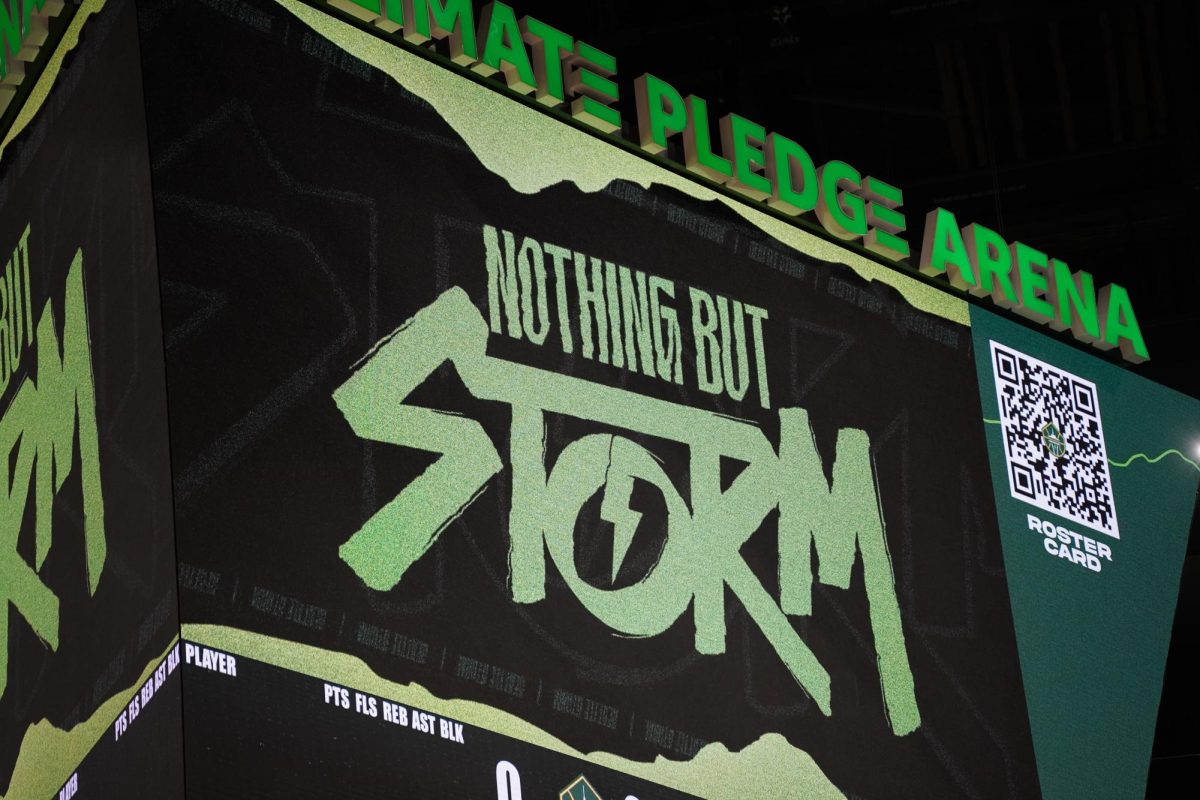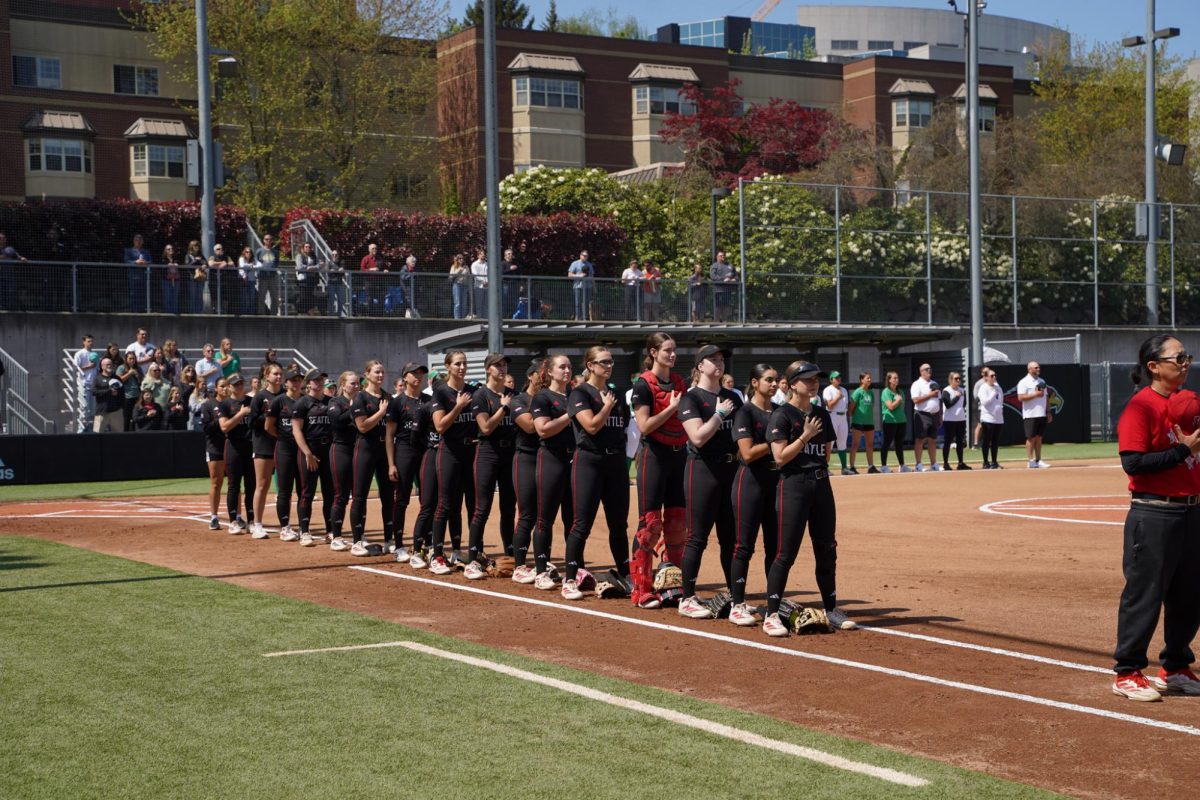Forward from the Sports Editor, Emily Hedberg:
As an athlete for Seattle University, a lover of all sports and the girlfriend of an avid Super Smash Brothers. player, I have become completely and utterly perplexed by the incomprehensible wave that has taken over my significant other’s household in the form of Super Smash Bros. The ferocity with which he and his housemates attack one another over the minutia of the game, the extent of time each housemate will devote to practicing the game and even the way they will individually research game tactics and strategies is unquestionably comparable to the tenacity that I have witnessed in most of my fellow Division I athletes and their sporting endeavors. Due to this sweeping phenomenon and my confusion over it’s seriousness, I decided to send a writer to the Seattle U tournament and figure out more details about the Super Smash
Bros. hype.
Harrison Bucher
Staff Writer
Characters from several backgrounds gather together on one stage to battle it out until only one remains. I am talking, of course, about Super Smash Bros.
Super Smash Bros. is the Nintendo game franchise that continues to grow in popularity ranging from the classic Nintendo 64 version to the newest release for Wii U. The premise of the game is simple: taking people’s favorite characters from a variety of games and having them fight, or brawl, if you will.
On Thursday, the Douglas apartments hosted a Super Smash Bros. tournament. I entered myself but was unable to defeat either the Seattle U Smash Bros. Club Co-President junior Brian Hansen or the eventual champion, junior Austin Gill. Super Smash Bros. has grown to become a very competitive event and even the University of Washington held their own tournament over the weekend.
“I feel like Super Smash Bros. is a game that everybody plays in their childhood,” Hansen said. “It is a game that some people play casually and some people play competitively, but almost everyone plays.”
The game has had several versions as new game systems were made. Along with the addition of new characters, each game also adds on other features such as new stages, items and game modes. By encompassing aspects of Nintendo’s most popular games, they were able to create a game that appealed to a large group of people, and it grew from there.
“The competitive nature of it is kind of strange and it gets a controversial view from different kinds of people,” Gill said. “A lot of people say that the competitive nature of Smash Bros. takes away from it because it strips away some of the components such as taking away items or limiting the stage selection, which is true, but you want to level the playing field.”
For a time, Nintendo did not support the competitive scene of Super Smash Bros., but eventually began to promote it themselves after seeing the type of attention it was getting. There are now competitive tournaments that take place throughout the world for this spectacle of a game.
“The game has become so competitive in the sense that it is a thinking game and you need to know what your character can do and how you can beat your opponent,” Hansen said. “But when you are playing so fast, you don’t normally have time to think and it becomes playing on instinct and a game you have to practice a lot.”
The competitiveness and popularity of Super Smash Bros. has become so big that some even compare the tournaments to a sporting event.
“I think they definitely attract the same type of attention and the hype you would get [in a sport],” Gill said. “If you go to a big name tournament there are people who love the game, people cheering them on and people who care about it. It is definitely the same type of dynamic.”
While playing in the small-scale tournament of the Douglas Lounge, I was able to meet students who really care about the game and witness some different playing styles. I also got the opportunity to learn more about the game and why people love it so much.
“As far as games go, I feel like I can put in time for it and be rewarded for that,” said junior and Super Smash Bros. club member Jackson Van Dyck. “I would compare it to a one-on-one sport, like tennis, where people have different playstyles and use different equipment. If you prefer one sort of style, it is not necessarily invalidated by something superior.”
If anyone is looking to learn more about Super Smash Bros. and would be interested in playing either casually or competitively, the club meets every Wednesday in Garrand 114 from 5:15 p.m. to 7 p.m.
Whether you choose to play the game in a tournament or just with a group of your friends, you are sure to have a smashing time.







